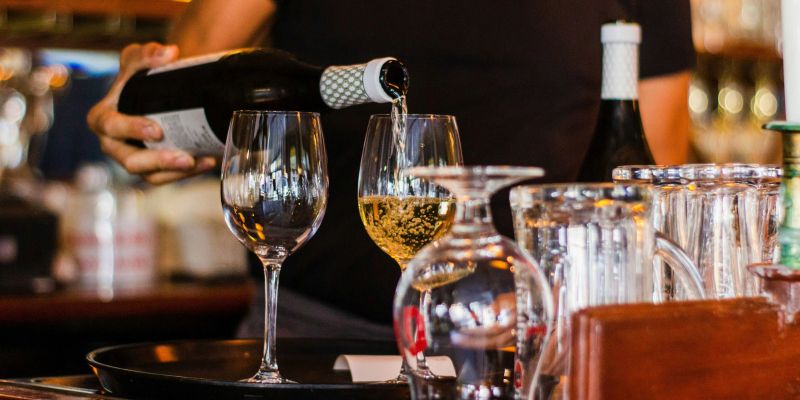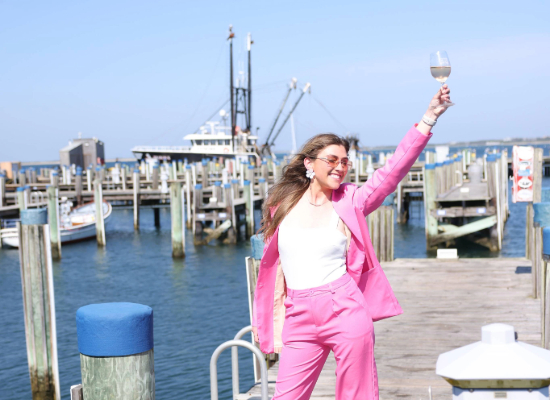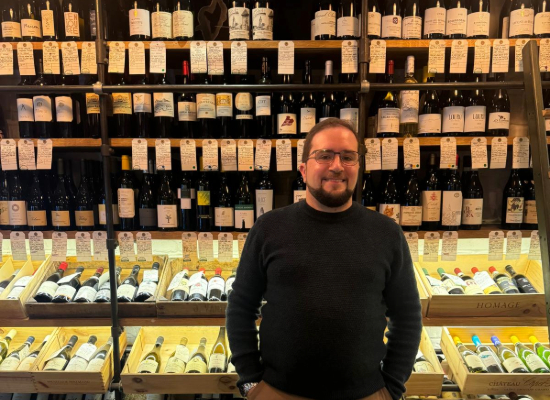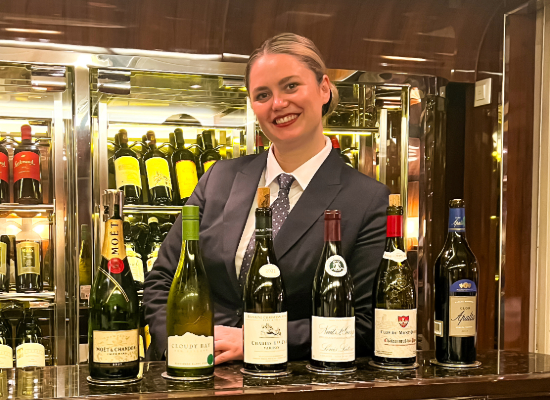Educating Sommeliers Worldwide.
By Beverage Trade Network

In an ever-evolving dining landscape, boosting beverage sales requires more than just a stellar wine list—it demands strategic thinking, innovation, and a deep understanding of customer behavior. Sommeliers significantly contribute to the development of these strategies, serving as a bridge between the dining experience and beverage sales. To uncover the most effective practices, Sommelier Business interviewed top sommeliers and beverage leaders from the UK and the US, gathering insights on staff training, wine menu optimization, customer engagement, and creative sales strategies. Here are the different methods sommeliers rely on for increasing beverage sales.
Education and incentives are at the heart of growing beverage sales, according to sommeliers and industry leaders. Jamie Harrison Rubin of Kidstuff Hospitality emphasizes that, "The more informed your staff is, the more opportunity there is to inform and sell to guests." He suggests setting daily, weekly, and monthly education goals to keep the team engaged and motivated. Similarly, Samantha Madden of Ruby Wines highlights the importance of building staff confidence: “The more comfortable the restaurant staff can be with both wines by the glass and by the bottle, the more they can confidently talk about and recommend wines to a guest.”
Warner Boin of Confidence Uncorked summarizes the power of investing in people: “Don’t assume they come to you with all of the same base knowledge and experience. Spending time to educate your team and answering questions without judgment creates a talented salesforce with a strong culture.” When staff feel supported and empowered, they become confident and creative contributors to beverage sales growth.

Image Title: Certified Sommelier Samantha Madden
In addition to education, incentives play a crucial role in driving performance. Jeremy Shanker, MS of MINA Group, shared his approach: “I like to incentivize the staff with competitions to motivate them. Everyone loves a prize or the potential to earn one.” Francesco Merlo of Golborne Deli & Wine Store also encourages engaging staff by involving them in tastings with suppliers, helping them connect more personally with the products they recommend.
Also read: Everything Sommeliers, Importers, and Distributors Need to Know about Wine-by-the-Glass Programs
Peter Granoff, MS, from Ferry Plaza Wine Merchant, shared how Flight Nights can be a casual yet effective method: "We pour a set of the guest winemaker’s wines and they wander the room and chat with participants. It is very informal and relaxed." This relaxed atmosphere encourages guests to explore different wines while building rapport with producers.
Madden also highlights the value of wine tastings and dinners, noting that they provide guests with an opportunity to taste and learn about a multitude of wines and become more comfortable ordering. For Darshit Bhatia of Princess Cruises, themed wine-pairing events are a fantastic way to entice customers. He shared an example of a regional Italian wine dinner, saying, "It boosted sales by 30% for the night." Alexia Fagundes Klein from Seabourn Cruise Line endorses this concept, highlighting the significance of providing wine tastings and pairings with new labels, along with incentives such as discounts on wine packages.

Image Title: Golborne Deli & Wine Store’s sommelier Francesco Merlo
Rubin of Kidstuff Hospitality asserts that a well-written wine list serves as a valuable sales tool. "Wine is incredibly opaque as a baseline, and having consistent and easy-to-read lists is a step in the right direction," he explains. An intuitive wine list not only helps guests make informed decisions but also showcases the expertise of the staff, which is especially important for smaller operations without a full wine team.
Curating beverage pairings to complement the food menu is another effective way to increase sales. Sean Liu of Chez TJ highlights the success of offering seasonal pairings, noting that a seasonal menu can lead to "increased average check totals as customers opted for suggested drinks."
David Keck, MS of Stella14 Wines, emphasizes the importance of curating a wine list that aligns with the restaurant’s concept and clientele. Tailoring the list to the restaurant’s theme—whether it’s a steakhouse or a hip wine bar—helps identify the "sweet spot" in the price list and drives sales by catering to customer preferences.
[[relatedPurchasesItems-61]]
Additionally, Christopher Fagan of Fiola discusses how investing in preservation systems enables offerings such as library pairings and high-end wines served by the glass. "Growth for me doesn’t necessarily happen in the huge, legendary bottles," he says, but in offering guests the chance to enjoy fine wines in smaller, more accessible quantities.
Madden stresses the value of offering half-bottle lists and large-format wines to enhance the dining experience. "A good half bottle list can help you upsell almost any glass of wine to a half bottle," she says, adding that it’s also a beneficial option for guests dining solo or with a companion. "It gives guests the opportunity to learn and taste more wines in the same sitting."
By offering a well-curated wine list that is simple to navigate, featuring thoughtful pairings, and incorporating seasonal or unique wines, restaurants can not only enhance the dining experience but also encourage increased beverage sales.
Also read: How to Create a Diverse and Dynamic Wine List?

Image Title: Alexia Fagundes Klein from Seabourn Cruise Line
Understanding and engaging with customers is key to driving beverage sales. Ranier Reglos of Sabio Hospitality underscores the importance of tailoring wine programs to customer preferences: “The best way to grow your sales is to understand your customer. When most new sommeliers start, we’re guilty of tailoring the list to what we think will sell rather than looking at current market trends and customers.” While sommeliers can take risks with their selections, Reglos emphasizes the value of actively conversing with guests to uncover what they’re looking for.
Boin of Confidence Uncorked highlights the human element in sales, noting that authenticity and connection often translate into higher sales. “Allow people to be people and show humanity in their job. Often, guests may find sommeliers overly 'perfect' and polished, making them appear unapproachable. Once I stopped trying to make a sale and instead focused on connecting with my guests, I saw a significant increase in wine sales. By asking questions and sharing personal stories, she found that establishing trust led to increased sales.
By implementing the proven strategies shared by leading sommeliers and beverage experts, restaurants can not only enhance their profitability but also elevate the guest experience. Whether through thoughtful staff training, creative event programming, or a customer-focused approach, these insights offer actionable steps to thrive in a competitive industry.
Header image sourced from Unsplash
Related Links
The Evolving Role of the Sommelier: Then and Now
How to Craft a Profitable Wine Program for Your Restaurant?